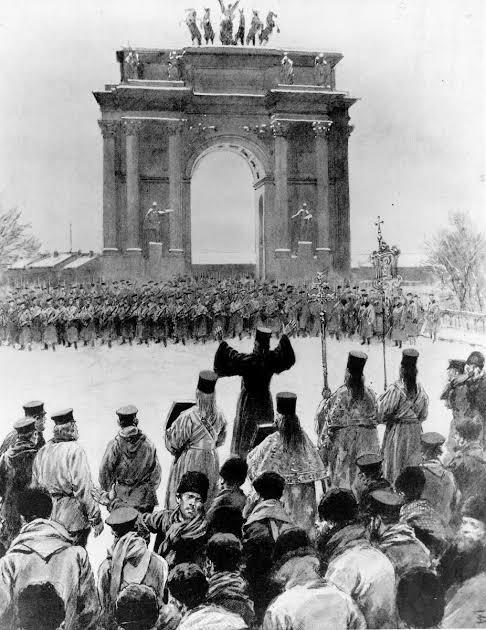The Novelty of Russian Social Conservatism
Heraclitus' line "No man ever steps in the same river twice, for it's not the same river and he's not the same man" is just as true when it comes to nations, religions and their traditions. Here I'm going to go into how this is the case for Russian conservativism.
One of the key concepts introduced by The Moralist International is that of 'conservative aggiornamento.' This makes use of an Italian phrase used by the Second Vatican Council essentially meaning "modernisation of religious tradition." In the Catholic context, this meant things like conducting services in common language (rather than Latin), ecumenism, tolerating religious freedom, and things generally considered "liberal." In the Russian Orthodox case however, the aggiornamento is decisively conservative.
The use of this phrase is to make clear that appeals to traditionalism are not simple returns to a real past, but very much updates of "tradition" for a modern world. It is to emphasise "the novelty of Russian social conservatism."
As a parallel, Islamic fundamentalism in the form of Sunni Wahhabism is often seen as ultra-traditionalist, as "mediaeval" even. In reality, Wahhabism springs from the mid-18th century. The ultra-reactionary ideology of al Qaeda, Qutbism, is from the 1960s. It harkens back to the past, but is very much from the present.
Similarly, the Russian Orthodox's foray into social debates and international politics is largely only twenty or so years old. In Tsarist Russia, an expansion of the church’s influence beyond its spiritual competence was undesired, and internally strong monastic currents stood for a “principled lack of interest in the world." The church has traditionally been highly ascetic, with a focus on monasticism, to the point of being described as "anti-family."
“The man who marries does well, but the one who doesn’t marry does even better"
1 Corinthians 7:38.
There were of course exceptions to this: Father Gapon helped kickstart the 1905 Revolution for example, but really that is the exception that proves the rule.

During the Soviet era, the religious authorities were heavily suppressed and censored, with little room to influence or debate social policy. Even following the collapse of the Soviet Union, it took some time for the Orthodox Church to find its own footing in social politics.
Through the 1990s, with reinvigorated contact with the Catholic and Protestant worlds (both of which had been politically active in democracy for decades), the Russian Orthodox Church began to develop a more "modern" and active socially politically role.
In Orthodox Russia, you can see the defence of "traditional values" - such as in the opposition to domestic violence legislation - as being cast in terms of human rights and "freedom". The Orthodox Church said of the domestic violence bill:
It has an obvious anti-family orientation, reducing the rights and freedoms of people who have chosen a familial way of life and birth and the raising of children.
This is not the nomenclature that would have been mobilised by pre-Soviet, Tsarist, "traditional" Russia. Even the term "traditional values" is a relatively new import into Russia, which typically spoke of "spiritual-moral values" instead. The first meaningful mention of "traditional values" in Russian press appears to be from 1983, and in direct reference to Jerry Falwell's Moral Majority in America.
Even by the 1990s, "traditional values" were associated with America. In 1991, James Dobson of Focus on the Family (a fundamentalist anti-abortion, anti-LGBT American-based group) planned a visit to Russia (it was cancelled on account of the August Coup). A Russian newspaper article anticipating the visit entitled Dr. Dobson Could Not Come at a Better Time: An American Conservative Will Advise the Soviet People, described Dobson as:
...one of the most unshakable defenders of what is called “traditional family values” in America.
Another example of the clear American influence on Russian "tradition" is the common use of the term "про лайф", pronounced "pro life", distinct from the Russian words being за жизнь (za zhizn).
These are just some surface level examples, but illustrate some of the newness and international origins of Russian traditionalism. I will probably do one more post on how these international influences are impacting Russian domestic politics and then turn to what really interests me of how these domestic Russian debates inform their foreign policy.